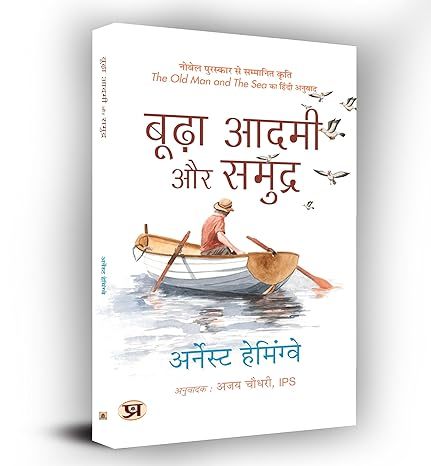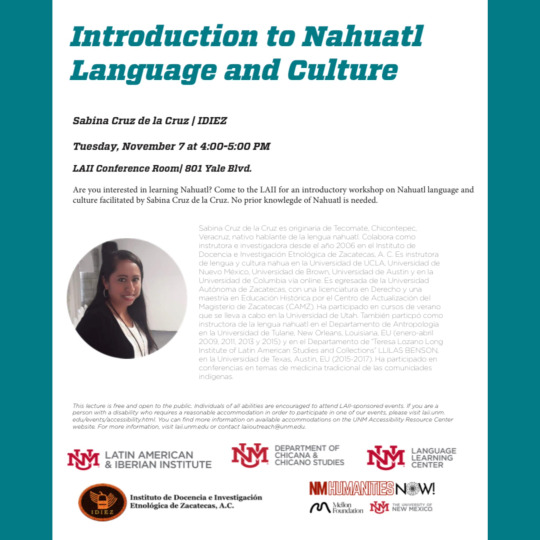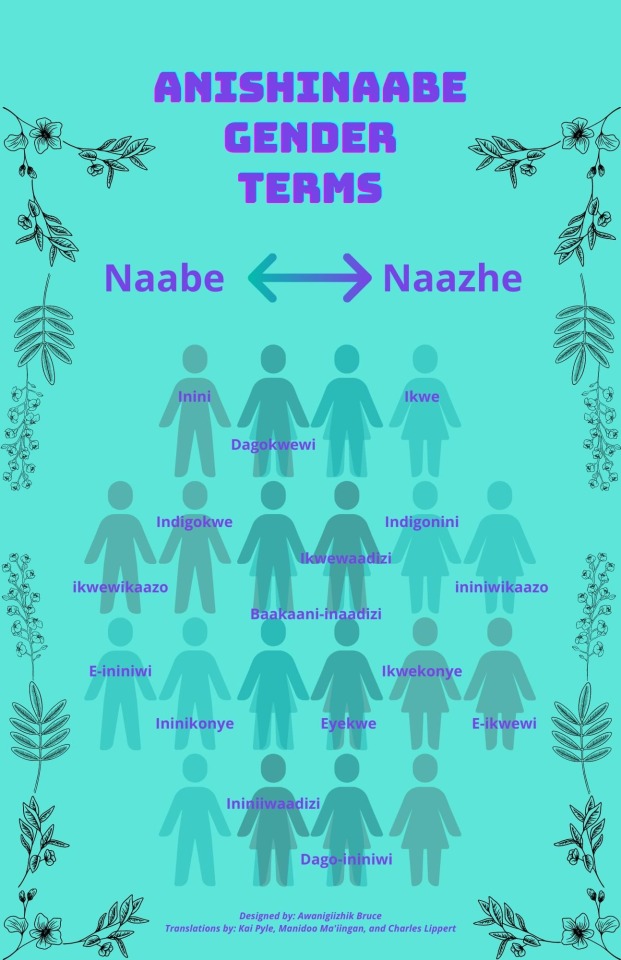#LanguageandCulture
Text
50 Japanese proverbs along with their English translations:
一寸先は闇。(Issun saki wa yami.) Translation: "One inch ahead is darkness."
石の上にも三年。(Ishi no ue ni mo sannen.) Translation: "Even on a rock, it takes three years."
虎穴に入らずんば虎子を得ず。(Koketsu ni irazunba koji o ezu.) Translation: "If you do not enter the tiger's cave, you will not catch its cub."
出る杭は打たれる。(Deru kui wa utareru.) Translation: "The stake that sticks out gets hammered down."
虎の子を産んでも親は親。(Tora no ko o undemo oya wa oya.) Translation: "Even if a tiger gives birth to a cub, it is still a mother."
花より団子。(Hana yori dango.) Translation: "Prefer dumplings over flowers."
七転び八起き。(Nanakorobi yaoki.) Translation: "Fall down seven times, stand up eight."
猿も木から落ちる。(Saru mo ki kara ochiru.) Translation: "Even monkeys fall from trees."
馬の耳に念仏。(Uma no mimi ni nenbutsu.) Translation: "Buddhist sutras to a horse's ear."
雨降って地固まる。(Ame futte ji katamaru.) Translation: "After the rain, the ground hardens."
井の中の蛙大海を知らず。(I no naka no kawazu taikai o shirazu.) Translation: "A frog in a well does not know the great sea."
急がば回れ。(Isogaba maware.) Translation: "If you hurry, take the long way around."
目くじらを立てる。(Mekujira o tateru.) Translation: "To raise an eyebrow."
虫の知らせ。(Mushi no shirase.) Translation: "News from the bugs."
備えあれば憂いなし。(Sona e areba urei nashi.) Translation: "If you are prepared, you have nothing to fear."
馬鹿は死ななきゃ治らない。(Baka wa shinanakya naoranai.) Translation: "Stupidity cannot be cured unless you die."
起きて半畳寝て一畳。(Okite hantatami nete ichijo.) Translation: "Waking up is half the bed, sleeping is a full tatami."
継続は力なり。(Keizoku wa chikara nari.) Translation: "Continuation is power."
猿も木から落ちる。(Saru mo ki kara ochiru.) Translation: "Even monkeys fall from trees."
言わぬが花。(Iwanu ga hana.) Translation: "Silence is golden."
良薬は口に苦し。(Ryoyaku wa kuchi ni nigashi.) Translation: "Good medicine tastes bitter."
鳥なき里の蝙蝠。(Tori naki sato no koumori.) Translation: "In a village without birds, bats are great singers."
縁の下の力持ち。(En no shita no chikara mochi.) Translation: "The person behind the scenes who holds the power."
馬の耳に念仏。(Uma no mimi ni nenbutsu.) Translation: "Buddhist sutras to a horse's ear."
継続は力なり。(Keizoku wa chikara nari.) Translation: "Continuation is power."
石の上にも三年。(Ishi no ue ni mo sannen.) Translation: "Even on a rock, it takes three years."
人のふり見て我がふり直せ。(Hito no furi mite waga furi naose.) Translation: "Observe the behavior of others and correct your own."
高い山から落ちる石は重い。(Takai yama kara ochiru ishi wa omoi.) Translation: "A stone falling from a high mountain is heavy."
鶏口となるも牛後となるな。(Keikou to naru mo gyuugo to naru na.) Translation: "Rather than becoming the mouth of a chicken, become the tail of an ox."
空鶴も1枚や2枚。(Karatsuru mo ichimai ya nimai.) Translation: "Even a crane dances a step or two."
蛙の子は蛙。(Kaeru no ko wa kaeru.) Translation: "A child of a frog is a frog."
立つ鳥跡を濁さず。(Tatsu tori ato o nigosazu.) Translation: "A departing bird leaves no trace."
二兎を追う者は一兎をも得ず。(Nito o ou mono wa itto mo ezu.) Translation: "One who chases after two hares will not catch even one."
弘法にも筆の誤り。(Koubou ni mo fude no ayamari.) Translation: "Even Koubou made mistakes with his brush."
悪因悪果。(Akuin akka.) Translation: "Evil begets evil."
隣の芝生は青く見える。(Tonari no shibafu wa aoku mieru.) Translation: "The grass is always greener on the other side."
悪事千里を走る。(Akugoto senri o hashiru.) Translation: "Evil deeds run a thousand miles."
火のないところに煙は立たぬ。(Hi no nai tokoro ni kemuri wa tatanu.) Translation: "There is no smoke without fire."
弱肉強食。(Jakuniku kyoushoku.) Translation: "Survival of the fittest."
塵も積もれば山となる。(Chiri mo tsumoreba yama to naru.) Translation: "Even dust, when piled up, becomes a mountain."
意気地なし。(Ikujinashi.) Translation: "No fighting spirit."
逆境に勝つ者は逆境に強い。(Gyakkyou ni katsu mono wa gyakkyou ni tsuyoi.) Translation: "Those who win in adversity are strong in adversity."
転ばぬ先の杖。(Korobanu saki no tsue.) Translation: "A cane before you fall."
時は金なり。(Toki wa kane nari.) Translation: "Time is money."
後悔先に立たず。(Koukai saki ni tatazu.) Translation: "Regret does not come before."
三人寄れば文殊の知恵。(Sannin yoreba Monju no chie.) Translation: "When three people gather, there is wisdom."
乞食の馬鹿は乞食をする。(Kojiki no baka wa kojiki o suru.) Translation: "A beggar's fool begs."
頭隠して尻隠さず。(Atama kakushite shiri kakusazu.) Translation: "Covering the head but not the bottom."
千里の道も一歩から。(Senri no michi mo ippo kara.) Translation: "Even a journey of a thousand miles begins with a single step."
弘法にも筆の誤り。(Koubou ni mo fude no ayamari.) Translation: "Even Koubou made mistakes with his brush."
These proverbs reflect various aspects of Japanese culture, wisdom, and values.
#JapaneseProverbs#Wisdom#JapaneseCulture#JapaneseLanguage#Quotes#Sayings#TraditionalWisdom#LifeLessons#JapaneseHeritage#Philosophy#today on tumblr#JapaneseWisdom#JapaneseTraditions#EasternPhilosophy#CulturalProverbs#LanguageandCulture#JapaneseSayings#JapaneseInspiration#EasternWisdom#JapaneseQuotes#JapaneseIdioms#TraditionalJapaneseWisdom#JapaneseProverbsandSayings#JapaneseLanguageLearning#JapaneseCultureandTraditions#JapaneseLifestyle#JapaneseWisdomQuotes#JapaneseSayingsofWisdom#deep thoughts
12 notes
·
View notes
Text
New Book Launching “ Bridging Cultures: Essential English Proverbs for Chinese Learners 跨越文化:中文学习者必备的英文谚语”
New Book Launching “ Bridging Cultures: Essential English Proverbs for Chinese Learners 跨越文化:中文学习者必备的英文谚语” , BEST price at Our SHOPIFY Shop @ https://1salesforce.com/products/english-proverbs-for-chinese-learners Thanks for your support in us creating better content for you! Get 30% EXTRA discount, use code “Edeo30”, applies to all products! For Hardcopy or Paperback books at best price with…
View On WordPress
#CrossCulturalWisdom#English#EnglishProverbs#EnglishProverbsForChineseLearners#EssentialProverbs#EssentialProverbsForChineseLearners#Idiom#JourneyThroughProverbs#LanguageAndCulture#Proverb#ProverbialWisdom#ProverbsForEverydayLife#TimelessWisdomJourney#Vocabulary#WisdomInLanguage#WisdomInWordsGuide#英文谚语#英语词汇#英语谚语#EnglishVocabulay
0 notes
Text
Budha Aadmi Aur Samudra (Hindi Translation of The Old Man And The Sea)

'बूढ़ा आदमी और समुद्र' उपन्यास एक बूढ़े गरीब मछुआरे के जीवन-संघर्ष की कहानी है। मछली पकडऩे जाना, मछली पकडऩे की कोशिश करना, उस कोशिश में कामयाब होना, फिर इस सफलता को अंजाम तक लाने की जद्दोजहद का नाम है 'बूढ़ा आदमी और समुद्र'।
एक मछुआरे के जीवन-संघर्ष की यह दास्तान काल, समय और सीमा के बंधन से परे है। यह मछुआरा दुनिया के हर कोने में मौजूद है— अपने परिवेश से जूझता हुआ बिना किसी आक्रोश के, बिना किसी तिरस्कार भाव के। शायद यह मछुआरा एक विकसित आत्मा भी है। उसके सारे मनोभाव तात्कालिक हैं। वह समुद्र से, चिडिय़ों से और मछलियों से संवाद करता है। विषम परिस्थितियाँ उसे विचलित नहीं करतीं। उसकी जिजीविषा मरजीवड़े से कम नहीं।
प्रकृति और मनुष्य के अंतर्संबंधों को बयान करता हुआ अर्नेस्ट हेमिंग्वे का यह उपन्यास निश्चित ही एक कालजयी रचना है तो फिर हम हिंदी के पाठक इससे क्यों वंचित रहते। अस्तु! Buy Now : https://www.amazon.in/Budha-Aadmi-Samudra-Hindi-Translation/dp/9355214626
#TheOldManAndTheSea#Hemingway#AjayChaudhry#HindiTranslation#LiteraryTranslation#ClassicLiterature#ErnestHemingway#IndianTranslation#HindiEdition#LiteratureInTranslation#BookTranslation#WorldLiterature#TranslationProject#HindiBooks#InternationalLiterature#LiteraryMasterpiece#CulturalExchange#GlobalLiterature#TranslationTuesday#LiteraryClassics#LanguageAndCulture#TranslationWork#CrossCulturalExchange#LiteraryHeritage#TranslationCommunity#ReadingInTranslation#LiteraryTranslationProject#MultilingualLiterature#TranslatedWorks#LiteraryTradition
0 notes
Text
#CivilizationSymphony#CommunicatingCultures#EvolutionOfSpeech#FromSoundsToSyntax#LanguageAndCulture#LanguageInHumanity#LinguisticLegacy#OralTraditionAlive#PhoneticFootprints#SpeechAndSociety#SpokenLanguageEvolution#SyntaxOfCivilization#VerbalHeritage#VoicesOfThePast#WordsBuildWorlds
0 notes
Text
MA In Sanskrit: Course, Fees, Admission, Syllabus, Career
The MA in Sanskrit is a post-graduate program that focuses on examining the linguistics and ancient history of India. Sanskrit, prominently known as the conventional language of Hinduism with ties to Buddhism, has its origins dating back to 1200 BCE. This language serves as the original medium for religious texts and Vedas in Indian culture, offering an extensive study of these ancient subjects.
Read More: https://skvv.co.in/ma-in-sanskrit/

#SanskritStudies#SanskritMasters#MAinSanskrit#SanskritLiterature#AncientLanguages#HumanitiesGraduate#LanguageMasters#IndianCulture#SanskritScholar#LiteraryStudies#ClassicalLanguages#CulturalHeritage#Philology#AcademicJourney#SanskritResearch#LanguageandCulture#SanskritPhilosophy#GradLife#Linguistics#ResearchInProgress
0 notes
Link
In this episode of The Catholic Bookworm, Kiki Latimer interviews Emily Hicks on her article "Teaching Language Skills to International Students in Catholic Seminaries and the Critical Component of Culture" (November 15, 2023)
The Seminary Journal is a journal of opinion, research, and praxis in the field of seminary education and formation for priesthood within the Roman Catholic tradition.
In the Spring of 2021, the faculty of the School of Theology at St. Mary’s Seminary & University in Roland Park, Baltimore decided to embark on a common faculty writing project in collaboration with Seminary Journal. The project was coordinated by Fr. Dennis Billy, C.Ss.R. The purpose of this effort on the part of the faculty was to encourage its members in light of the new Ratio Fundamentalis from Rome (2016) and the sixth edition of the Program for Priestly Formation (approved 2019) to delve more deeply into the various academic disciplines offered at the seminary, with an eye to how those disciplines should be taught in a Catholic seminary. It was also hoped that such a project would encourage closer collaboration among the faculty, with the hope of seeing how those disciplines relate to one another and how classroom pedagogy has an impact on the con-tent being both conveyed and received. Another hope was to offer the wider seminary community in the United States and beyond insights into how classroom pedagogy might impact the integration of the various dimensions of priestly formation.
Seminary Journal, Vol. 21, No. 1, Spring 2023 | En Route Books and Media
#catholicseminary#culture#emilyhicks#kikilatimer#language#languageandculture#seminaryjournal#teachingenglish#teachingenglishinseminary#thecatholicbookworm
0 notes
Text
"Embark on a captivating journey of language and culture with GermanEnglishJourney! Explore the fascinating world of languages, immerse yourself in diverse cultures, and discover the power of communication. From language tips to cultural insights, we're here to inspire, inform, and entertain language enthusiasts and curious minds alike. Join our community, subscribe to our blog, and let's embrace the beauty of language together!"
#GermanEnglishJourney#LanguageandCulture#Inspiration#LanguageEnthusiasts#CulturalExploration#Diversity#LanguageTips#Community#Subscribe#CuriousMinds#PowerofCommunication#LanguageLovers#Explore#EmbraceDiversity
0 notes
Text

🇫🇷📖 Celebrating International French Language Day 📖🇫🇷
Today is International French Language Day. Here is a thought-provoking quote by Alfred de Musset.
🌟 Quote of the Day:
"La vie est un sommeil, l'amour en est le rêve, et vous aurez vécu si vous avez aimé." - Alfred de Musset
Can you tell us the meaning of the quote in English or any other language?
Brief background information about the author, Alfred de Musset is provided in the comments section to enhance understanding and appreciation of the quote.
🤔 What does this quote mean to you? How do you interpret the connection between life, love, and dreams in your own journey?
💬 Share your thoughts, interpretations, or your favorite French quotes in the comments below! Let's celebrate the beauty of the French language together. 🎉
✨ Don't forget to follow our page for more inspiring quotes, language tips, and cultural insights! Joyeuse Journée Internationale de la Langue Française!
🥳🇫🇷 #InternationalFrenchLanguageDay #FamousFrenchQuotes #LanguageAndCulture #AlfredDeMusset #FrenchLiterature
0 notes
Text

Repost @NM Humanities Now on Facebook
Join us on Tuesday, November 7th from 4:00-5:00 pm for “Introduction to Nahuatl Language and Culture” with Sabrina Cruz de la Cruz, IDIEZ, in the UNM Latin American & Iberian Institute Conference Room (801 Yale Blvd).
#UNM #GoLobos #nahuatl #languageandculture
The University of New Mexico - UNM
UNM-Valencia Campus
UNM-Los Alamos
UNM-Taos
UNM-Gallup
CNM Central New Mexico Community College
UNM Chicana and Chicano Studies
UNM Language Learning Center
UNM - American Indian Student Services
Native American Studies - UNM
UNM American Studies Department
UNM KIVA Club
UNM Native American Leadership in Education Program
El Centro de la Raza
Mellon Foundation
Repost @NM Humanities Now on Facebook
See less
0 notes
Text
The Flower of Aleppo
This was a very touching film that left us all feeling incredibly sad and void of hope. We knew going in that the subject matter would inform the film in this way; talking about jihad and ISIS is never fun. The film, though, until the end, stayed fairly level and to an extent, mundane. This was really interesting, as it showed how radicalization can often go undetected and isn't always a very dramatic change in someone's life. There were obvious signs, but changes in mood and behavior among teenagers are normal. Busy, working parents are not always the most adept at catching these signs, nor can they always be the ones to properly address them. We have learned through the seminar that jihad is a big issue here in Tunisia and that the number of people who go over to Syria to fight is disproportionately large considering how small this country is. Seeing it played out like this makes it much more real for me. I have no experience with religious radicalization, so it was hard to truly understand what people were doing and what drove them to take up this fight. These are real and heartbreaking stories that are important to comprehend, so I am grateful for watching the film. The ending is very tragic and has stuck with me; I assume this was the intent of the director. I will not forget it anytime soon.
Johanna
Fall2022
#tunisia #SIT #arabic #languageandculture #culture
1 note
·
View note
Photo

a very rough translation
• “For the majority of society, racist, misanthropic, discriminatory debates only become real when mobs hunt people, set buildings on fire, kill. The hatred, the gloating, the violence, the rejection - all that is the daily reality for people like me, people who are marked as “different” - becomes visible to most people only when it escalates massively. The things that minority and marginalized groups experience are omens. We should listen carefully when they describe what is happening in the shadows - for what there are sometimes no words.“
- Kübra Gümüşay, Sprache und Sein •
#bookstagram#bookstagrammer#currentlyreading#knowledgeispower#languageandculture#hanserverlag#bookshelf#study#studyblr#mine#s20
13 notes
·
View notes
Text
𝔸ℕ𝕀𝕊ℍ𝕀ℕ𝔸𝔸𝔹𝔼 𝔾𝔼ℕ𝔻𝔼ℝ 𝕋𝔼ℝ𝕄𝕊
𝐴𝑛𝑖𝑠ℎ𝑖𝑛𝑎𝑎𝑏𝑒𝑚𝑜𝑤𝑖𝑛 𝑖𝑠 𝑎 𝑔𝑒𝑛𝑑𝑒𝑟-𝑛𝑒𝑢𝑡𝑟𝑎𝑙 𝑙𝑎𝑛𝑔𝑢𝑎𝑔𝑒. 𝐹𝑢𝑟𝑡ℎ𝑒𝑟𝑚𝑜𝑟𝑒, 𝑜𝑢𝑟 𝑤𝑜𝑟𝑑-𝑣𝑖𝑒𝑤 𝑎𝑛𝑑 𝑡𝑟𝑎𝑑𝑖𝑡𝑖𝑜𝑛𝑎𝑙 𝑐𝑢𝑙𝑡𝑢𝑟𝑒 (𝑝𝑟𝑒-𝑐𝑜𝑛𝑡𝑎𝑐𝑡 𝑓𝑟𝑜𝑚 𝐸𝑢𝑟𝑜𝑐𝑒𝑛𝑡𝑟𝑖𝑐 𝑖𝑑𝑒𝑜𝑙𝑜𝑔𝑖𝑒𝑠 𝑎𝑛𝑑 𝑎𝑠𝑠𝑖𝑚𝑖𝑙𝑎𝑡𝑖𝑜𝑛𝑠/𝑎𝑐𝑐𝑢𝑙𝑡𝑢𝑟𝑎𝑡𝑖𝑜𝑛𝑠) 𝑖𝑠 𝑢𝑛𝑑𝑒𝑟𝑠𝑡𝑎𝑛𝑑𝑖𝑛𝑔 𝑎𝑛𝑑 𝑎𝑐𝑐𝑒𝑝𝑡𝑖𝑛𝑔 𝑜𝑓 𝑜𝑢𝑟 𝑇𝑤𝑜 𝑆𝑝𝑖𝑟𝑖𝑡 𝑟𝑒𝑙𝑎𝑡𝑖𝑣𝑒𝑠. 𝑇ℎ𝑒𝑦 𝑎𝑟𝑒 𝑟𝑒𝑔𝑎𝑟𝑑𝑒𝑑 𝑎𝑛𝑑 𝑣𝑎𝑙𝑢𝑒𝑑 𝑎𝑠: 𝐻𝑢𝑛𝑡𝑒𝑟𝑠, 𝐹𝑖𝑠ℎ𝑒𝑟𝑠, 𝐺𝑎𝑡ℎ𝑒𝑟𝑒𝑟𝑠, 𝐶ℎ𝑖𝑙𝑑-𝑏𝑒𝑎𝑟𝑒𝑟𝑠, 𝐶𝑜𝑚𝑚𝑢𝑛𝑖𝑡𝑦 𝑃𝑟𝑜𝑡𝑒𝑐𝑡𝑜𝑟𝑠, 𝑁𝑎𝑚𝑒-𝑔𝑖𝑣𝑒𝑟𝑠, 𝐻𝑒𝑎𝑙𝑒𝑟𝑠, 𝑀𝑒𝑑𝑖𝑐𝑖𝑛𝑒 𝑃𝑒𝑜𝑝𝑙𝑒, 𝐶𝑒𝑟𝑒𝑚𝑜𝑛𝑖𝑎𝑙𝑖𝑠𝑡𝑠, 𝐹𝑖𝑒𝑟𝑐𝑒 𝑊𝑎𝑟𝑟𝑖𝑜𝑟𝑠, 𝑆𝑡𝑟𝑎𝑡𝑒𝑔𝑖𝑠𝑡𝑠, 𝑒𝑡 𝑐𝑒𝑡𝑒𝑟𝑎. 𝑇ℎ𝑒𝑠𝑒 𝑡𝑒𝑟𝑚𝑠 𝑤𝑒𝑟𝑒 𝑐𝑜𝑚𝑝𝑙𝑖𝑒𝑑 𝑓𝑟𝑜𝑚 𝑟𝑒𝑠𝑒𝑎𝑟𝑐ℎ 𝑎𝑛𝑑 𝑐𝑜𝑛𝑣𝑒𝑟𝑠𝑎𝑡𝑖𝑜𝑛𝑠 𝑓𝑟𝑜𝑚 𝐾𝑎𝑖 𝑃𝑦𝑙𝑒, 𝑀𝑎𝑛𝑖𝑑𝑜𝑜 𝑀𝑎'𝑖𝑖𝑛𝑔𝑎𝑛, 𝑎𝑛𝑑 𝐶ℎ𝑎𝑟𝑙𝑒𝑠 𝐿𝑖𝑝𝑝𝑒𝑟𝑡. 𝐼 𝑚𝑎𝑑𝑒 𝑡ℎ𝑖𝑠 𝑝𝑜𝑠𝑡𝑒𝑟 𝑓𝑜𝑟 𝑜𝑛𝑒 𝑜𝑓 𝑚𝑦 𝑓𝑖𝑛𝑎𝑙 𝑝𝑟𝑒𝑠𝑒𝑛𝑡𝑎𝑡𝑖𝑜𝑛 𝑎𝑡 𝑠𝑐ℎ𝑜𝑜𝑙. 𝑀𝑖𝑖𝑔𝑤𝑒𝑐ℎ!
𝐄𝐦𝐛𝐨𝐝𝐢𝐦𝐞𝐧𝐭𝐬:
𝑵𝒂𝒂𝒛𝒉𝒆 = /𝘯𝘰𝘶𝘯/ (female child-bearing bodied)
𝑵𝒂𝒂𝒃𝒆 = /𝘯𝘰𝘶𝘯/ (male bodied)
𝐓𝐫𝐚𝐝𝐢𝐭𝐢𝐨𝐧𝐚𝐥 𝐆𝐞𝐧𝐝𝐞𝐫 𝐓𝐞𝐫𝐦𝐬:
𝑰𝒏𝒊𝒏𝒊(𝒘𝒂𝒈) = /𝘯𝘰𝘶𝘯/ male(s)
𝑰𝒌𝒘𝒆(𝒘𝒂𝒈) = /𝘯𝘰𝘶𝘯/ female(s)
𝑰𝒏𝒅𝒊𝒈𝒐𝒌𝒘𝒆(𝒘𝒂𝒈) = /𝘯𝘰𝘶𝘯/ like a woman
𝑰𝒏𝒅𝒊𝒈𝒐𝒏𝒊𝒏𝒊(𝒘𝒂𝒈) = /𝘯𝘰𝘶𝘯/ like a man
𝑫𝒂𝒈𝒐𝒌𝒘𝒆𝒘𝒊 = /𝘯𝘰𝘶𝘯/ woman spirit within a man
𝑫𝒂𝒈𝒐-𝒊𝒏𝒊𝒏𝒊𝒘𝒊 = /𝘷𝘦𝘳𝘣/ man spirit within a woman
𝑬-𝒊𝒌𝒘𝒆𝒘𝒊 = /𝘷𝘦𝘳𝘣/ both spirits are female (sapphic femme lesbian)
𝑬-𝒊𝒏𝒊𝒏𝒊𝒘𝒊 = /𝘷𝘦𝘳𝘣/ both spirits are male (gay masc male)
𝑬𝒚𝒆𝒌𝒘𝒆 / 𝒂𝒂𝒚𝒆𝒌𝒘𝒆 / 𝒂𝒂𝒚𝒂𝒂𝒌𝒘𝒆 / 𝒆𝒚𝒂𝒂𝒌𝒘𝒆(𝒘𝒂𝒈) = /𝘯𝘰𝘶𝘯/ experience as a woman
𝑰𝒌𝒘𝒆𝒘𝒂𝒂𝒅𝒊𝒛𝒊 = /𝘷𝘦𝘳𝘣/ has the nature of a woman
𝑰𝒏𝒊𝒏𝒊𝒊𝒘𝒂𝒂𝒅𝒊𝒛𝒊 = /𝘷𝘦𝘳𝘣/ has the nature of a man
𝑰𝒏𝒊𝒏𝒊𝒌𝒐𝒏𝒚𝒆 = /𝘷𝘦𝘳𝘣/ dress like a man (feminine cross-dress)
𝑰𝒌𝒘𝒆𝒌𝒐𝒏𝒚𝒆 = /𝘷𝘦𝘳𝘣/ dress like a woman (masculine cross-dress)
𝑩𝒂𝒂𝒌𝒂𝒂𝒏𝒊-𝒊𝒏𝒂𝒂𝒅𝒊𝒛𝒊 / 𝒃𝒂𝒂𝒌𝒂𝒂𝒏𝒊𝒛𝒊 = /𝘷𝘦𝘳𝘣/ Their actions different (positive, respectful connotations)
Please Like and Follow Awanigiizhik Bruce - Anishinaabe - Diverse Media Artist for more content!
#gender #genderneutral #indigenous #indigenouspeople #indigenousrights #ojibwe #ojibwemowin #ojibweflorals #infographic #infographicdesign #poster #nativeamerican #IndigenousLanguages #languageandculture #traditionalculture #definitions #dictionaryart #dictionary #posterdesign #sexed #gendereducation #anishinaabe #anishinaabemowin #anishinaabeartist #indigenousdesigner #indigenousculture

11 notes
·
View notes
Text
New Book Launching “ Bridging Cultures: Essential English Proverbs for Chinese Learners 跨越文化:中文学习者必备的英文谚语”
New Book Launching “ Bridging Cultures: Essential English Proverbs for Chinese Learners 跨越文化:中文学习者必备的英文谚语” , BEST price at Our SHOPIFY Shop @ https://1salesforce.com/products/english-proverbs-for-chinese-learners Thanks for your support in us creating better content for you! Get 30% EXTRA discount, use code “Edeo30”, applies to all products! For Hardcopy or Paperback books at best price with…
View On WordPress
#CrossCulturalWisdom#English#EnglishProverbs#EnglishProverbsForChineseLearners#EssentialProverbs#EssentialProverbsForChineseLearners#Idiom#JourneyThroughProverbs#LanguageAndCulture#Proverb#ProverbialWisdom#ProverbsForEverydayLife#TimelessWisdomJourney#Vocabulary#WisdomInLanguage#WisdomInWordsGuide#英文谚语#英语词汇#英语谚语#EnglishVocabulay
0 notes
Video
NEW Changing Scripts Podcast episode. So much to learn from Ian, bring your notebooks along for the listen! Link in bio #dcpodfest #ChangingScriptsPodcast #podcastersofInstagram #Podbean #Podcasts #MandarinChinese #Chinese #languageandculture #languagelearning #reading #podernfamily @internationalpodcastday # (at Shanghai, China) https://www.instagram.com/p/BpL1qq4gyoZ/?utm_source=ig_tumblr_share&igshid=z0x9tvdsv8bw
#dcpodfest#changingscriptspodcast#podcastersofinstagram#podbean#podcasts#mandarinchinese#chinese#languageandculture#languagelearning#reading#podernfamily
0 notes
Text
Our Mom v.s. My Mom
In Korean, mom is our mom, not my mom. Korean language reflects collectivist culture, while English reflects individualist culture.
한국말로 엄마는, 내 엄마가 아니라 우리 엄마다. 한국어는 집단주위 문화를 ��어는 개인주위 문화를 반영한다.
0 notes
Text
New Book Launching “ Bridging Cultures: Essential English Proverbs for Chinese Learners 跨越文化:中文学习者必备的英文谚语”
New Book Launching “ Bridging Cultures: Essential English Proverbs for Chinese Learners 跨越文化:中文学习者必备的英文谚语” , BEST price at Our SHOPIFY Shop @ https://1salesforce.com/products/english-proverbs-for-chinese-learners Thanks for your support in us creating better content for you! Get 30% EXTRA discount, use code “Edeo30”, applies to all products! For Hardcopy or Paperback books at best price with…
View On WordPress
#CrossCulturalWisdom#English#EnglishProverbs#EnglishProverbsForChineseLearners#EssentialProverbs#EssentialProverbsForChineseLearners#Idiom#JourneyThroughProverbs#LanguageAndCulture#Proverb#ProverbialWisdom#ProverbsForEverydayLife#TimelessWisdomJourney#Vocabulary#WisdomInLanguage#WisdomInWordsGuide#英文谚语#英语词汇#英语谚语#EnglishVocabulay
0 notes